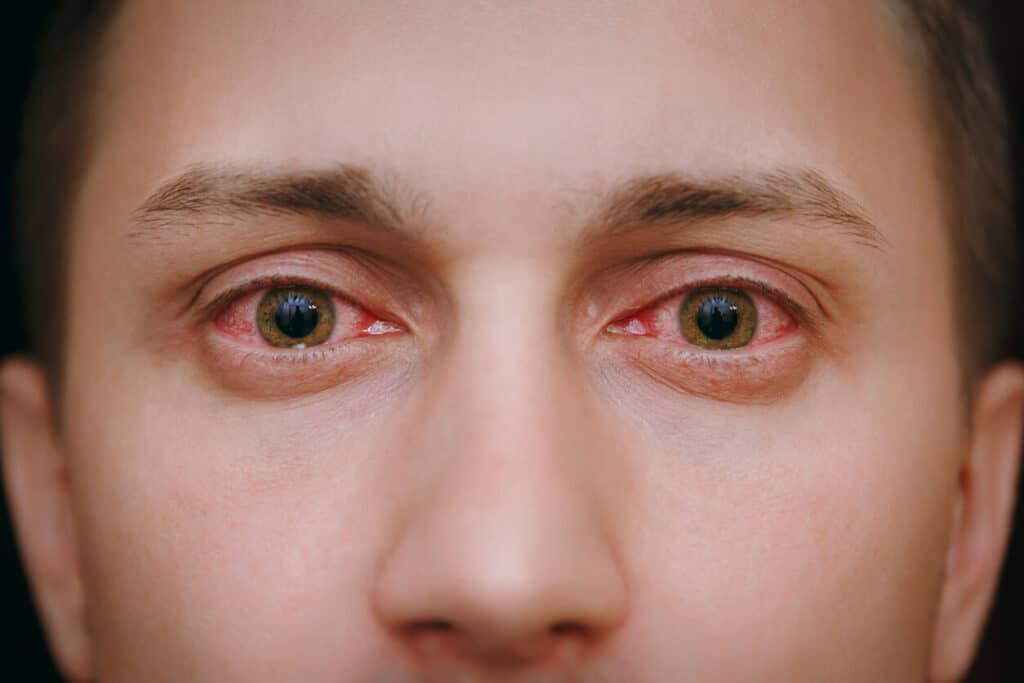
Eye allergies, also known as allergic conjunctivitis, can be a bothersome condition affecting millions of individuals worldwide. Redness, itching, swelling, and watery eyes are just some of the uncomfortable symptoms that can disrupt daily life.
If you are seeking effective eye allergy treatment options, this blog will walk you through proven solutions to help you find relief while understanding the root causes of this common condition.
Understanding Eye Allergies
Before exploring treatment options, it is essential to understand what causes eye allergies. Eye allergies occur when the immune system reacts to an allergen, such as pollen, dust mites, mold, or pet dander.
The body releases histamines, leading to a range of unpleasant symptoms, including redness, itching, and excessive tearing.
Eye allergies can be seasonal or perennial:
- Seasonal Allergies: These are often linked to outdoor allergens like pollen and are more common during periods of high pollen counts, such as spring and fall.
- Perennial Allergies: These occur year-round and are related to indoor allergens like dust mites, mold, or pet dander.
Popular Eye Allergy Treatment Options
Finding the right eye allergy treatment depends on the severity of your symptoms and the allergens triggering your reaction.
Below are scientifically supported treatment options to help alleviate eye allergy symptoms:
1. Artificial Tears
Artificial tears are an over-the-counter solution that provides lubrication to relieve irritation. They are particularly effective in washing away allergens like pollen or dust that may have come into contact with your eyes.
Some benefits of artificial tears include:
- Moisturizing and soothing dry, itchy eyes.
- Acting as a gentle solution for mild eye allergy symptoms.
- Being widely accessible in pharmacies without a prescription.
Note that preservative-free options are recommended if you plan to use artificial tears frequently.
2. Antihistamine Eye Drops
Antihistamine eye drops work by blocking the release of histamines in your body, which are responsible for producing allergy symptoms. These drops are highly effective for managing itching and redness caused by allergens.
Key features of this eye allergy treatment are:
- Rapid relief for eye allergy symptoms.
- Available as over-the-counter or prescription options, depending on the concentration.
- Suitable for both seasonal and perennial allergies.
Consult your eye care professional to determine the best antihistamine solution for your needs.
3. Mast Cell Stabilizers
Mast cell stabilizers help prevent allergic reactions by inhibiting the release of histamines and other inflammatory substances from mast cells. These drops are designed for long-term use and are ideal for individuals who frequently experience allergies.
Benefits include:
- Preventing future allergic episodes.
- Reducing dependency on immediate-relief medications.
- Proving effective for chronic sufferers of eye allergies.
Since these drops often require a prescription, discuss their use with your eye doctor.
4. Decongestant Eye Drops
Decongestant eye drops reduce redness by shrinking the blood vessels in your eyes. While they can be effective in the short term, prolonged use is generally not recommended as these drops may lead to rebound redness once you stop using them.
Use cautiously and limit their use to occasional instances for temporary relief.
5. Oral Antihistamines
If eye drops are not sufficient, oral antihistamines can help manage allergy symptoms at a systemic level. These medications are especially helpful when allergies affect multiple areas, such as the nose, throat, and eyes.
Popular oral antihistamines include:
- Cetirizine (Zyrtec)
- Loratadine (Claritin)
- Fexofenadine (Allegra)
Be aware that older formulations of antihistamines may induce drowsiness, so opt for non-drowsy versions for daytime use.
6. Allergen Avoidance
One of the simplest yet highly effective ways to manage eye allergies is by minimizing exposure to your triggers. Here are practical steps to get started:
- Use an air purifier to reduce indoor allergens like dust and mold.
- Keep windows closed during pollen season to prevent allergens from entering your home.
- Wash your hands and face frequently, especially after spending time outdoors.
- If you have pets, ensure they are groomed regularly to minimize dander.
7. Immunotherapy
For individuals with severe or persistent allergy symptoms, immunotherapy (allergy shots or sublingual tablets) is a long-term treatment option that can help desensitize the immune system. By gradually introducing small amounts of an allergen to your body, immunotherapy reduces the severity of allergic reactions over time.
While this option requires commitment and regular visits to an allergist, it offers significant improvement for many individuals with chronic allergies.
8. Cold Compresses
Applying a cold compress to your eyes can provide soothing relief for swelling and irritation caused by allergies.
Although this method does not address the root cause, it is an excellent supplementary treatment to alleviate discomfort.
When to See an Eye Specialist
If your symptoms persist despite trying multiple remedies, or you notice unusual signs such as pain, blurred vision, or discharge, it is essential to consult an eye care professional.
They can provide a thorough evaluation and recommend specialized treatment options tailored to your needs.
Eye Allergy Treatment in Washington, MO
Are eye allergies keeping you from enjoying life to the fullest? Relief is within reach with the right eye allergy treatment and guidance.
At Advanced Sight Center, our experienced team of eye specialists can help you address your eye allergies and find the best personalized solutions. From identifying your triggers to prescribing effective treatments, we are committed to improving your vision and quality of life.
Schedule your consultation by calling us today at (636) 239-1650 or using our appointment request form. We look forward to serving you!


